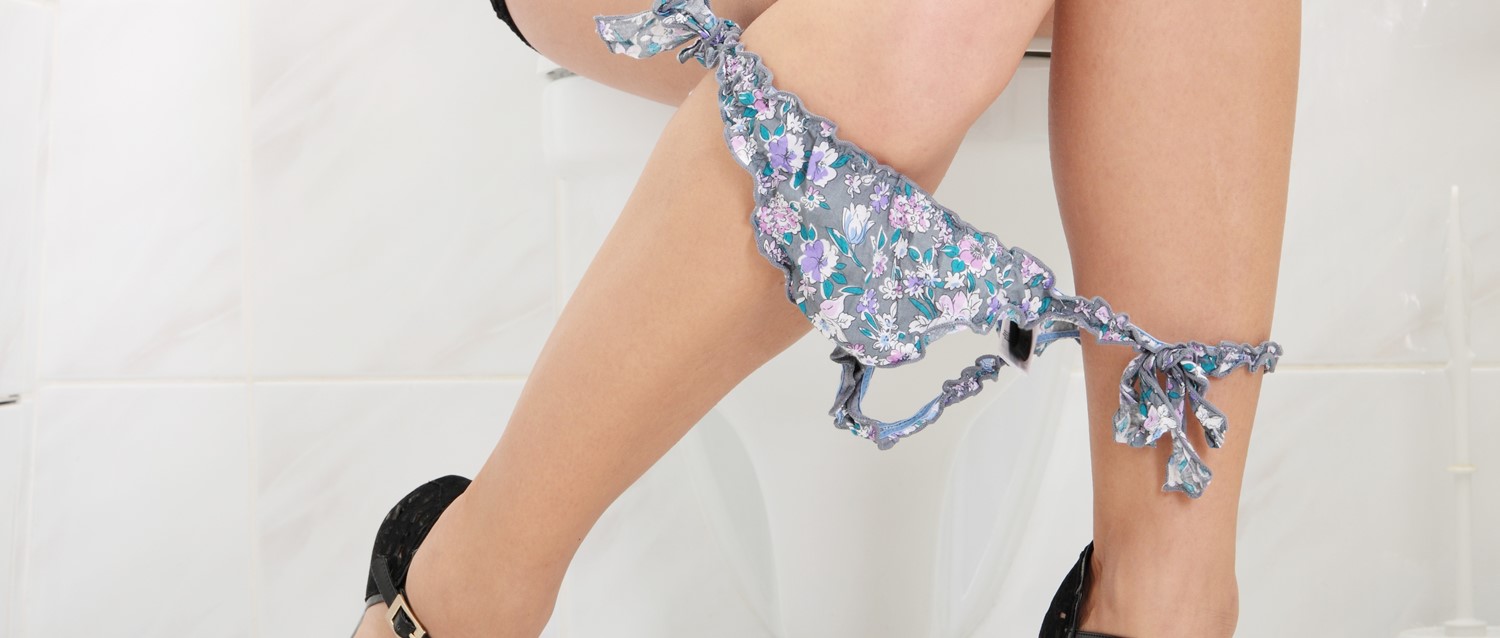
Will a UTI go away on its own?
Peer reviewed by Dr Sarah Jarvis MBE, FRCGPLast updated by Sally TurnerLast updated 20 Feb 2019
Meets Patient’s editorial guidelines
- DownloadDownload
- Share
- Language
- Discussion
- Audio Version
Urinary tract infections, also known as UTIs and bladder infections, are a common health issue, particularly for women, and can recur with frustrating frequency. We asked a urologist whether it's safe to let a UTI 'run its course', or if antibiotics are always the best treatment.
In this article:
Video picks for Urinary tract infections and symptoms
Continue reading below
How common are UTIs?
Around 50-60% of women will develop at least one urinary tract infection (UTI) in their lifetime, and people with diabetes and men with enlarged prostate glands are also at risk. Burning and stinging on urination, and feeling achy, sick and tired are common UTI symptoms,and can make life a misery for those who suffer frequent UTI infections.
What causes UTIs?
Back to contentsStudies show that Escherichia coli (E. coli) is the organism that causes UTIs in the majority of patients, and most infections are caused by bacteria from the bowel getting into the bladder. This is why women are more susceptible, as the anus is so close to the urethra (opening to the urinary tract).
Continue reading below
How to prevent UTIs
Back to contentsTo reduce the risk of getting a UTI, wipe from front-to-back after a bowel movement, maintain personal hygiene, stay hydrated, and use a pH-balanced lubricant during sex (to prevent skin irritation) or topical oestrogen cream following the menopause (to reduce vaginal dryness). But self-care tips aren't always enough to prevent UTIs.
Leaving a UTI untreated
Back to contentsCystitis (inflammation of the bladder) is a common type of UTI, particularly in women, and is not usually a cause for serious concern.
"It's certainly true that a substantial number of cases of cystitis do clear up with fluids plus painkillers and many patients do manage their condition this way," says Mr Ased Ali, a member of the Bladder Health UK medical panel and a consultant urologist with Mid Yorkshire Hospitals NHS Trust.
Continue reading below
How to treat a UTI
Back to contentsThe 2018 National Institute for Health and Care Excellence (NICE) UTI guidelines suggest fluid and painkillers in self-care for simple UTIs with no signs of serious infection such as pyelonephritis (kidney infection) or sepsis. They also suggest that in some situations patients should have 'back-up' antibiotics to be taken if UTI symptoms worsen or after 48 hours if UTI symptoms are not settling. They leave open the option of giving a prescription to some women immediately. Men, pregnant women and under-16s should have a urine sample sent to the lab for culture and should be offered antibiotics to take straightaway.
Your pharmacist can advise on interim options to control UTI symptoms while you wait for them to resolve. For instance, they can provide sachets which alkalinise the urine, relieving burning and the desire to pass water.
The risks of leaving a UTI untreated
Back to contents"There was a suggestion in a small German study in 2010 that using just painkillers to treat UTIs may be no worse than antibiotics," adds Ali. "But a more extensive study by the same group in 2015 refuted this and showed that women who did not take antibiotics had a significantly higher total burden of UTI symptoms, and more cases of pyelonephritis - a severe infection of the kidney which can require hospital admission and can lead to sepsis."
Similar results to the German UTI trial were seen in a Swiss study in 2017 and a recent Norwegian one in 2018. Both showed that avoiding antibiotics was an inferior approach to treating UTIs. While many women will get over the infection without antibiotics, a proportion will experience severe complications.
"Although substantial numbers of women recovered from their UTI without antibiotics, between 4-5% of the women not treated with antibiotics went on to develop pyelonephritis," explains Ali. "The authors of the Norwegian paper stated that they could not recommend ibuprofen alone as initial treatment for women with uncomplicated UTIs."
When do you need antibiotics for a UTI?
Back to contentsIn its SIGN 88 guidelines for UK healthcare, the Scottish Intercollegiate Guidelines Network recommends antibiotic treatment for otherwise healthy women, under 65, who have three or more UTI symptoms.
UTI symptoms
Back to contentsPotential UTI symptoms are listed as follows:
Pain passing urine (dysuria)
Frequency of urination
Bladder pain
Urgency
Passing lots of urine (polyuria)
Passing blood in the urine (haematuria)
How to test for a UTI
Back to contents"The guidelines recommend using UTI dipstick tests to guide treatment decisions in otherwise healthy women under 65 years of age presenting with mild or more than two symptoms of UTI," comments Ali. "Put simply, if symptoms are severe, urine testing is not required before initiating treatment."
The best course of action for managing a UTI
Back to contentsFor most UTI sufferers, Ali advises the best course of action is to increase fluid intake, take appropriate pain relief and speak with a healthcare professional for further assessment of UTI symptoms.
If UTI symptoms persist for more than two days - or include a fever, loin pain and/or nausea and vomiting - it is important to see your GP for advice on whether antibiotics are required. It's also important to go back if you've been started on antibiotics and symptoms do not improve within 48 hours.
"While some of the over-the-counter treatments may provide symptomatic relief, the 2018 NICE UTI guidelines state that there is no evidence found for cranberry products or urine alkalinising agents to treat UTI," he adds. "However, there's a clinical trial showing the effectiveness of D-mannose. And grapefruit seed extract and oil of oregano have also been found to be beneficial."
Is it a UTI, or something else?
Back to contentsThere can be considerable overlap between UTI symptoms and sexually transmitted infections (STIs) such as chlamydia and gonorrhoea. Bacterial vaginosis, vaginal thrush, vulvodynia, lichen sclerosus, endometriosis, bladder cancer and overactive bladder may also cause similar symptoms. Antibiotic use may also trigger vaginal thrush in some women and require additional treatment.
"Recent unprotected sexual intercourse, discharge from the urethra and pain within the pelvic area or sexual organs would increase the likelihood of an STI," says Ali. "Again, an assessment by an appropriate healthcare professional would be advised and various swabs or urine tests may be required."
Interstitial cystitis (IC), also known as painful bladder syndrome, may also be a cause of recurrent UTI symptoms. IC is a chronic, non-infectious condition of the urinary bladder that causes frequency and urgency of urination and significant pelvic pain that worsens as the bladder fills up. IC is a difficult diagnosis to make and requires tests and input from a urologist. If you think you may have IC, visit your GP, and contact the Interstitial Cystitis Association and Bladder Health UK for advice and support.
Patient picks for Urinary tract infections and symptoms

Kidney and urinary tract
9 ways to get rid of a UTI
Urinary tract infections - UTIs - aren't serious or life threatening, but they can be very uncomfortable and bothersome. Whether you're looking to clear up an existing infection or wanting to lower your chances of recurring UTIs, we've put together nine UTI home treatments, medications, and supplements that can help free you from UTI irritation.
by Amberley Davis

Kidney and urinary tract
What to do about constant UTIs
Cystitis is common in women of all ages, but for some, recurrent infections occur frequently and have a detrimental impact on quality of life. We examine the latest thinking on urinary tract infections and look at how to minimise their recurrence.
by Sally Turner
Continue reading below
Article history
The information on this page is peer reviewed by qualified clinicians.
20 Feb 2019 | Latest version

Ask, share, connect.
Browse discussions, ask questions, and share experiences across hundreds of health topics.

Feeling unwell?
Assess your symptoms online for free
Sign up to the Patient newsletter
Your weekly dose of clear, trustworthy health advice - written to help you feel informed, confident and in control.
By subscribing you accept our Privacy Policy. You can unsubscribe at any time. We never sell your data.